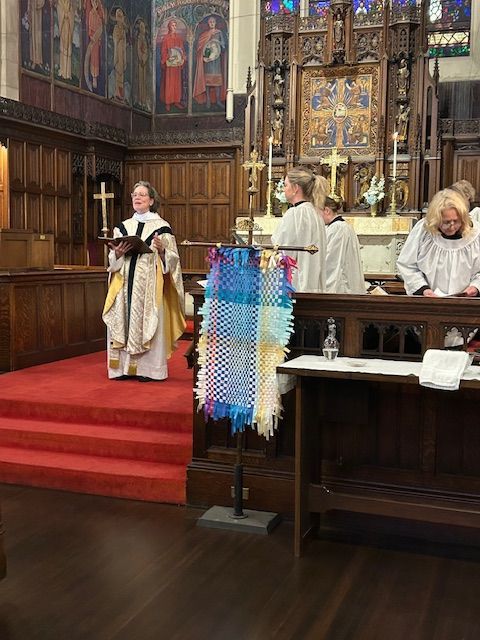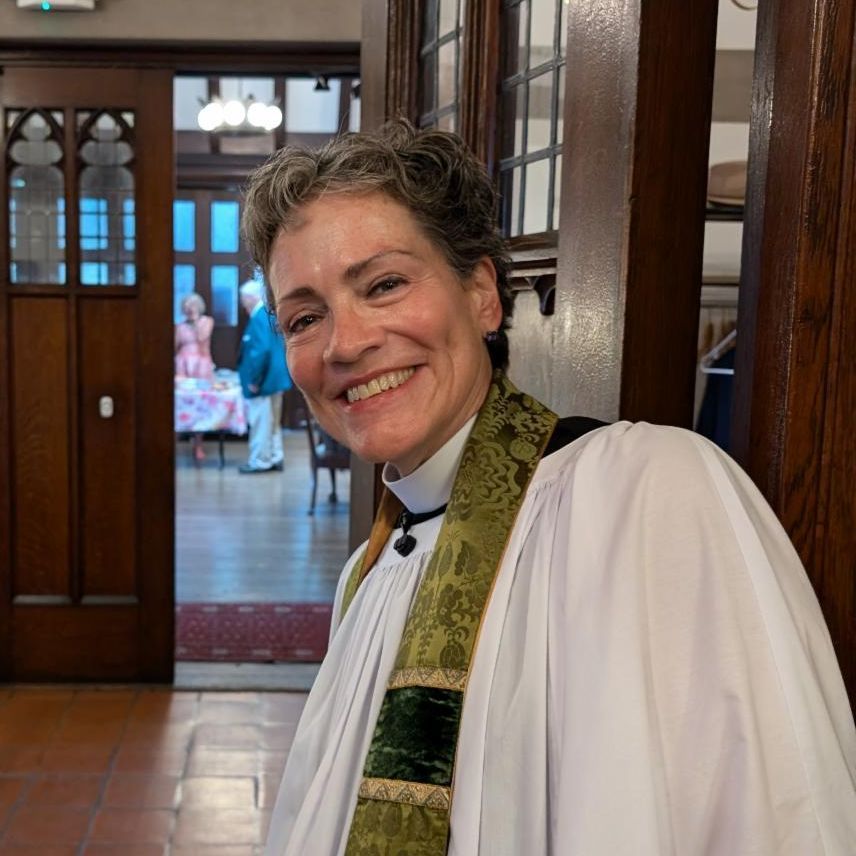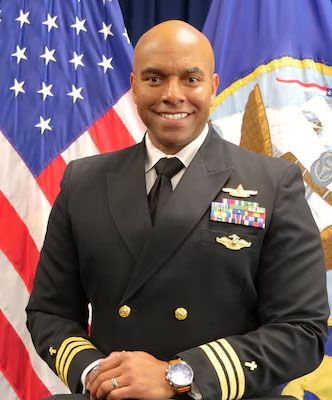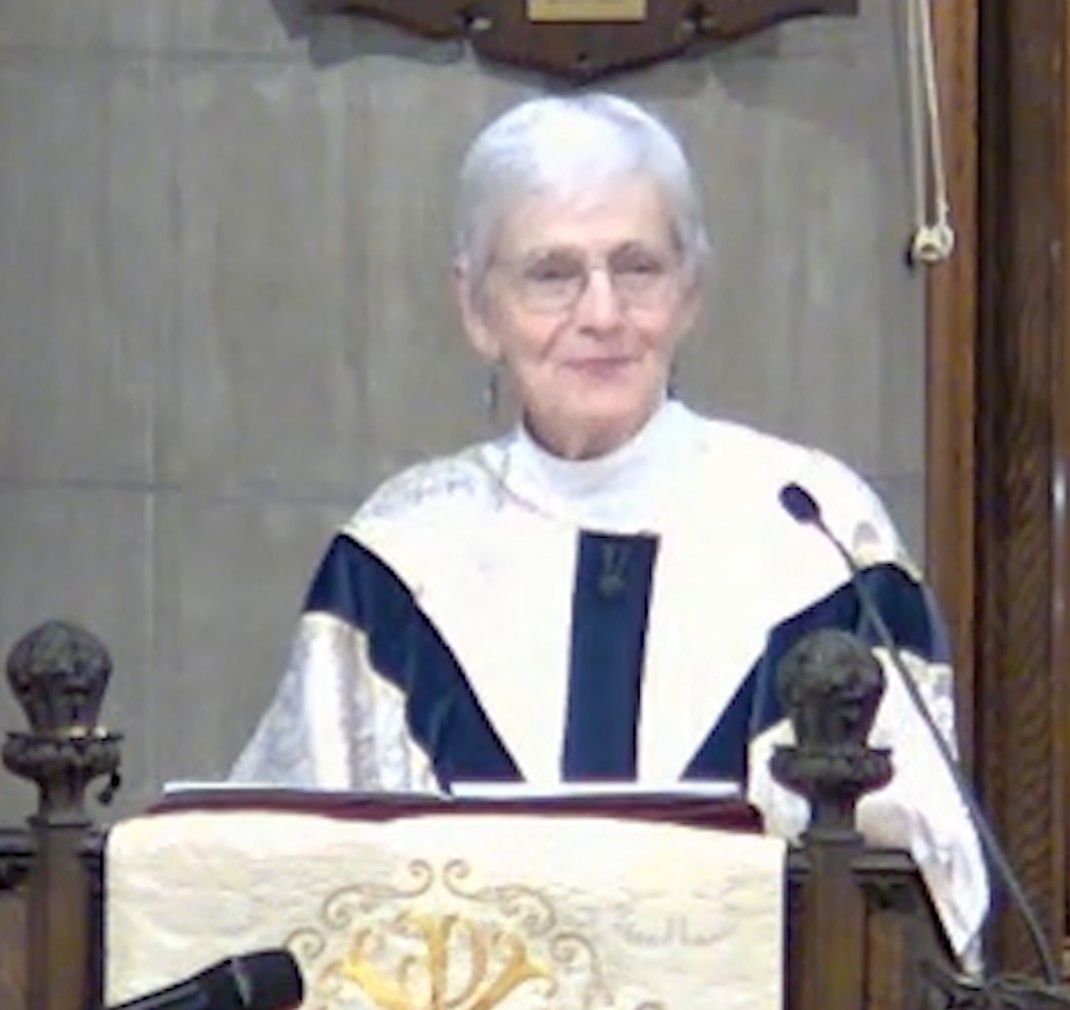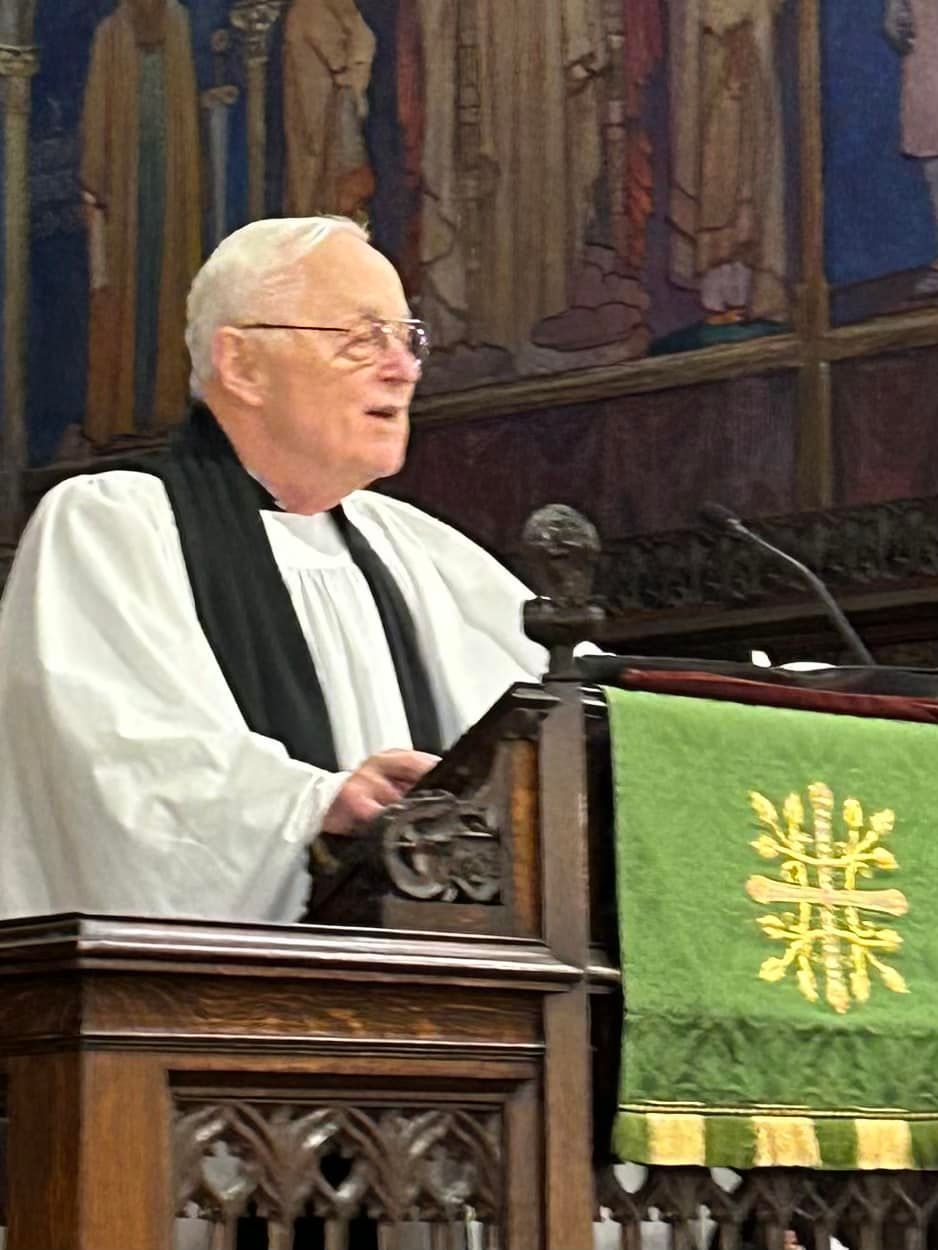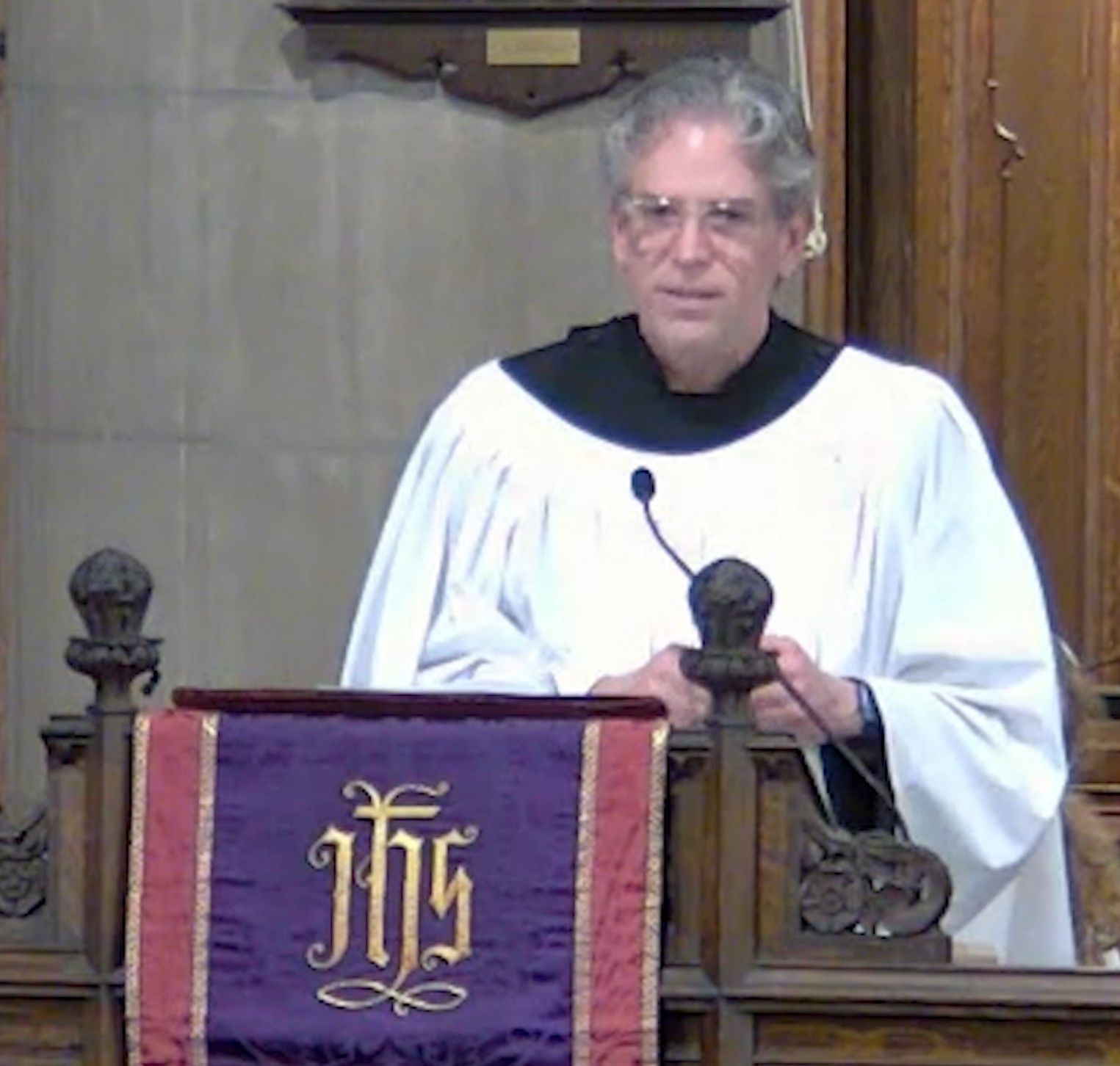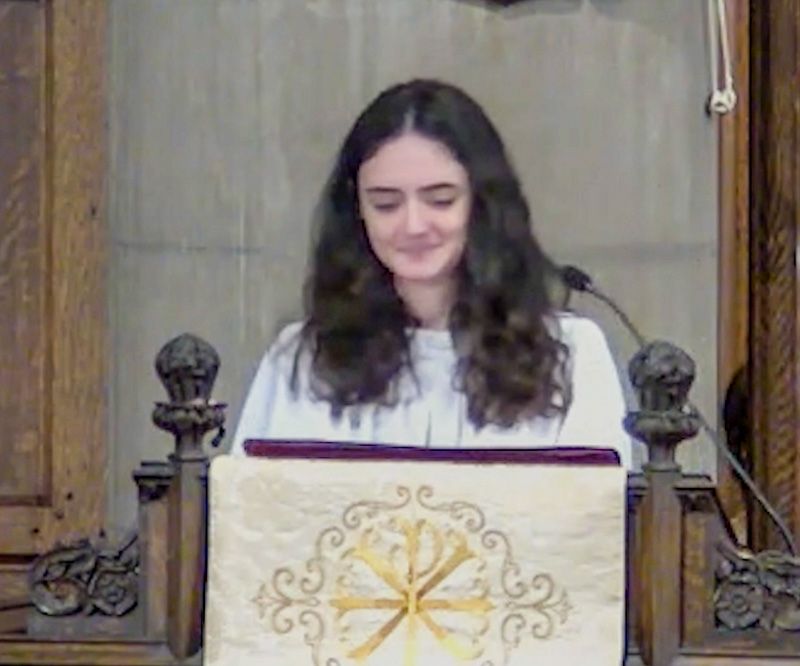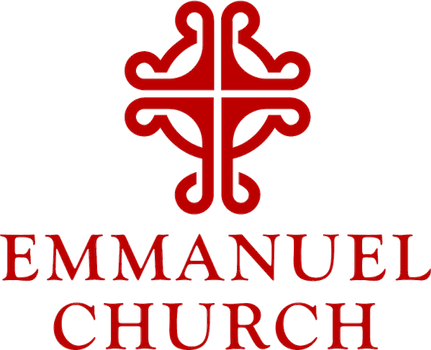Easter 6
In the spirit the angel carried me away to a great, high mountain and showed me the holy city Jerusalem coming down out of heaven from God.
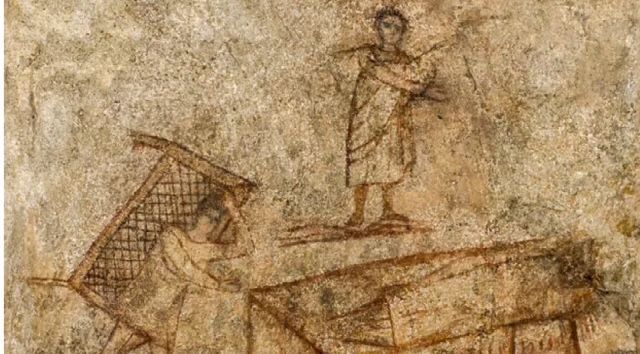
In the spirit the angel carried me away to a great, high mountain
and showed me the holy city Jerusalem
coming down out of heaven from God.
Over and over again God reveals the holy city — the New Jerusalem — and invites us to live in this bright, holy vision. What keeps us from getting up off our mat and walking around in this way of love and life? Where were you 38 years ago? Just to do the math for us quickly, that was 1987. In 1987, U.S. President Ronald Reagan delivered his famous “Mr. Gorbachev, tear down this wall!” speech in Berlin. The world population reached an estimated five billion, martial law ended in Taiwan after 38 years, and the Canada–United States Free Trade Agreement was reached, paving the way for NAFTA.
Wall Street suffered an historic plunge on Black Monday in October 1987, Aretha Franklin became the first woman inducted into the Rock & Roll Hall of Fame, Michael Jackson released the album Bad, and the New York Giants won the Super Bowl. Astronomers witnessed the birth of a galaxy for the first time, and Pope John Paul II visited the United States.
38 years ago, lots of things were different — in the world, on Aquidneck Island, in Newport. What if time had stood still for you back in 1987? In John’s gospel this morning, we meet up with Jesus at the pools of Bethsaida. Bethsaida means house of kindness, or house of help, and is where the city of Bethesda, Maryland gets its name. It’s interesting that John’s gospel interrupts the story to tell us that the Hebrew name for the pools is Beth-zatha. Maybe he wants to reassure us that the pools are connected somehow with the Jews and with Jesus. Or maybe he’s signaling that the pools are outside our culture and experience to see what insights we can draw from their pagan use. The Pools of Bethsaida were actually an ancient asclepeion, a place of healing dedicated to the Greek god of medicine, Asclepius. In art and sculpture, we recognize Asclepius by his staff with a snake wrapped around it, the traditional symbol of medicine.
Dean McGowan talked about this gospel story in art when he was with us, inviting us to see the 3rd century fresco from an early house church in Dura-Europa in ancient Syria that’s displayed the Yale University Museum of Art. (I join Dean McGowan’s encouragement to see these almost 2000-year-old frescos for yourself, — but ask me after services if you want to see a photograph of the image depicting today’s gospel story of the man rising from his mat and moving on with his life.)
Healing at an ancient asclepeion emphasized therapy through the natural environment, so asclepions were carefully located near springs, where water bubbled up naturally through the ground, or in caves, where water dripped down through rocks. Care for the patient’s psychological and emotional states was key, as they activated innate healing mechanisms, promoting recovery. At the pools of Bethsaida in our story today— at this asclepeion — many people who are unwell are lying in the sheltered areas around the pools. The word used for their general sickness is astheneo, meaning powerless or weak in any way, whether physical, emotional, political, or economic.
We also get a list of some of the specific illnesses some have, including blindness, lameness, and paralysis. They couldn’t see a way forward, or if they could, they just couldn’t make themselves move to get there. They may have also had physical impairments, but the setting at the spa, with its focus on emotional and spiritual health, invites us to wonder whether they were just stuck in their old way of interacting with each other and the world. John’s gospel doesn’t tell us the specific nature of the illness of the man Jesus speaks to — just that it has persisted for 38 years. We have to wonder — how often did the man come to the pools? Where did he go at night? How did he return each day? If he just stayed there at the pools, how did he get food and care for himself? Maybe Jesus wondered these things too. Do you want to be made well? Jesus asks. It’s a fair question to ask at an asclepeion. The sick man answers, Sir, I have no one to put me into the pool when the water is stirred up; and while I am making my way, someone else steps down ahead of me. At a natural spring like the Pools of Bethsaida, water bubbles up from the ground from time to time, and people believed that the first person to get into the pool when that happened would be healed. Brushing by this excuse, Jesus says to the man, Stand up, take your mat and walk. At once the man was made well, and he took up his mat and began to walk.
I visited the pools often while I lived in Jerusalem, and the pools are at a low spot, just inside the Lion’s Gate to the Old City. Not only did the man pick up his mat and walk, it would have been uphill to get back into the city to rejoin the community. This is not one of those times when the gospel remembers that Jesus said your faith has made you well. With the specific details we get in the story — the asclepeion’s focus on spiritual and emotional health and the evidence of the man’s habitual presence at the pools with no positive change after 38 years —John’s gospel practically jumps up and down to get us to wonder what did change in that moment. How do we get stuck in our lives? Maybe it’s nostalgia — maybe we just really loved 1987 because it was a happy time for us. Or are we afraid we won’t be able to keep up? Do we think we won’t have enough — people, money, young families, space, or food? Do we doubt ourselves? Do we think that we ourselves aren’t enough — that we can’t do it on our own?
Lydia, the seller of purple cloth in our reading from Acts, is my absolute favorite businesswoman/ Christian laywoman combo in scripture. Her story is also a great reassurance of the power of community. Lydia is the head of a whole household that functioned in first century Asia Minor — modern Turkey — as a significant commercial enterprise. Preacher Sarah S. Scherschligt writes, Lydia is converted. She changes. Then she lets the gospel conversion extend to her household. Then her household welcomes others. A whole church is formed. And the narrative voice of the Book of Acts gives us all a part in God’s action. Through the first person plural, WE are invited into the action. WE can see ourselves in that context, and WE participate in the gospel message. WE can see what it means to join in, take action, change, and move forward with our community.
With our collaboration with Newport Classical, our thriving Musicians’ Circle, the grant from the McBean Foundation to heat and air condition the church, our sound and video streaming system, the Community Bridge, the Community Garden, and all of us, like Lydia and her whole new church, we are converted and changed. We are un-stuck. We can move forward as a community to embrace a new reality in God. This is a time for us to pause — from our list-making, our focus on our needs, our fears of scarcity, and our worries that we don’t have enough — or that we ourselves are not enough. Now is a time for abounding joy, deep gratitude, and massive celebration. We have been made well in Jesus. God has done marvelous things. Amen
